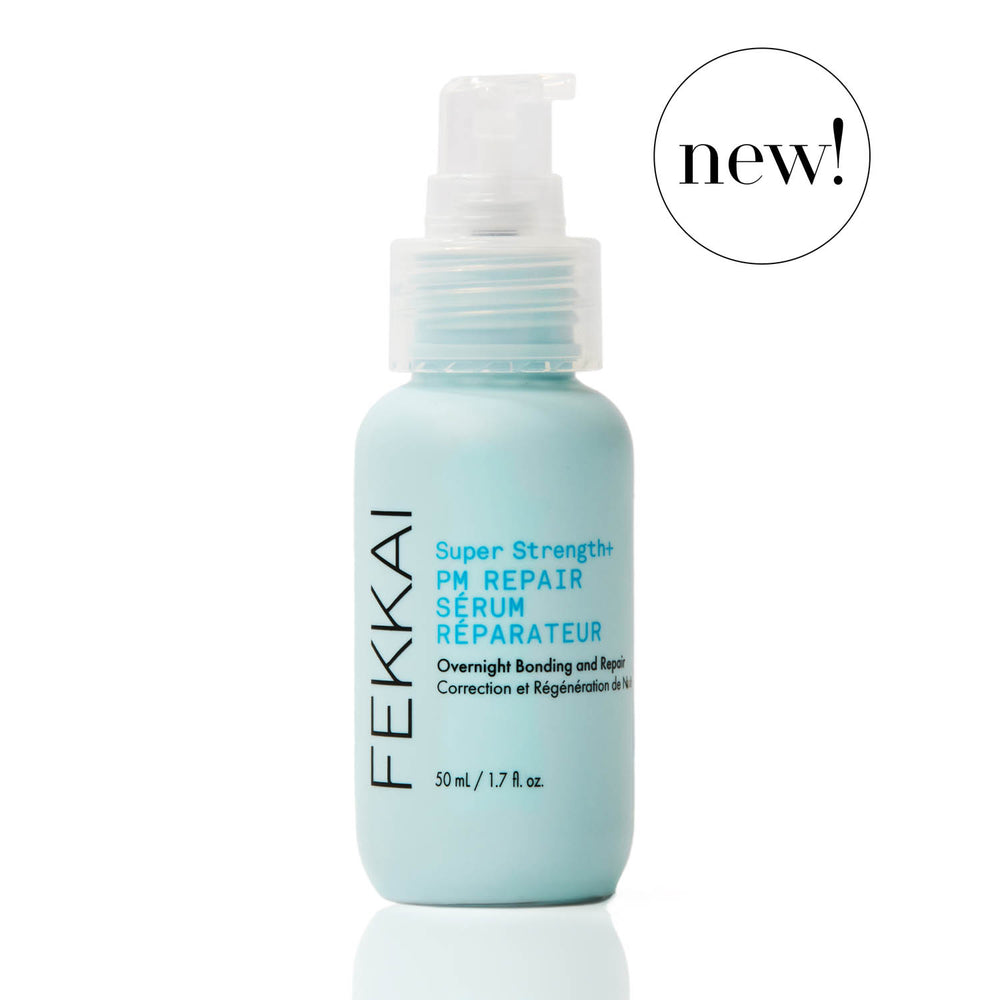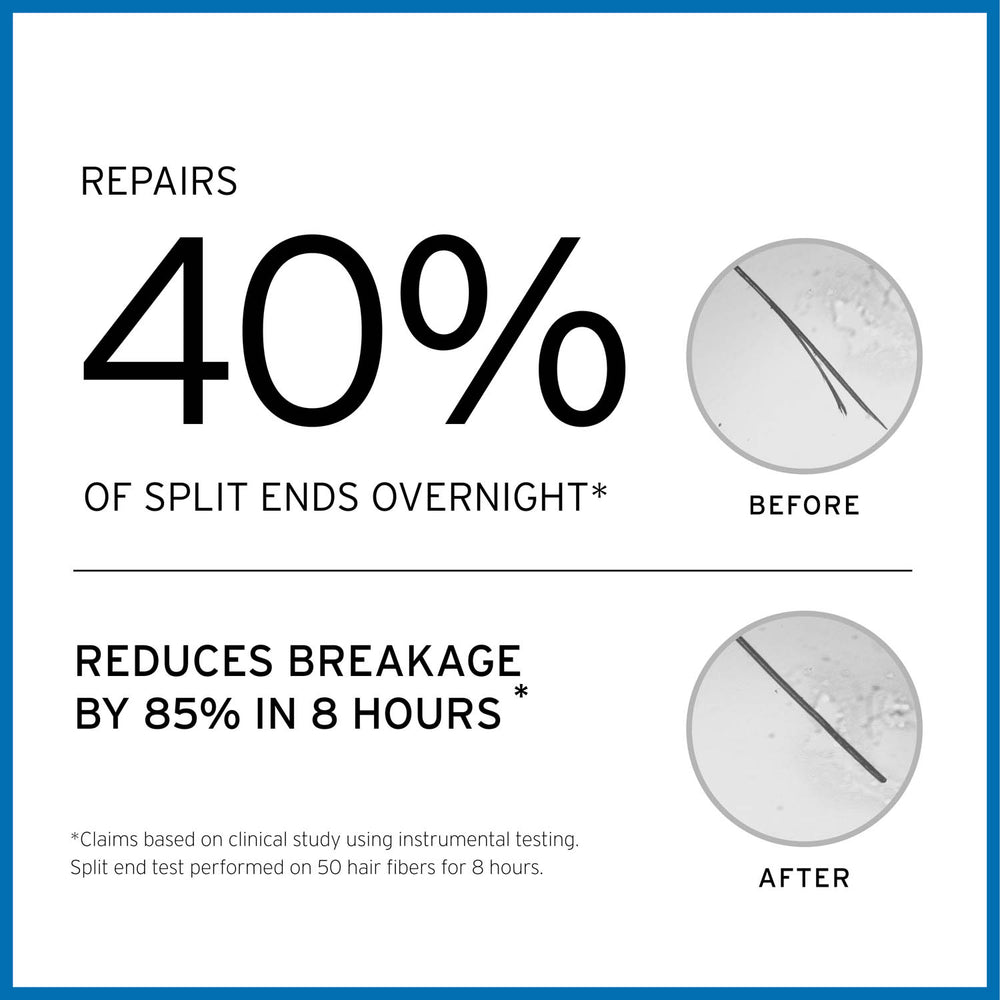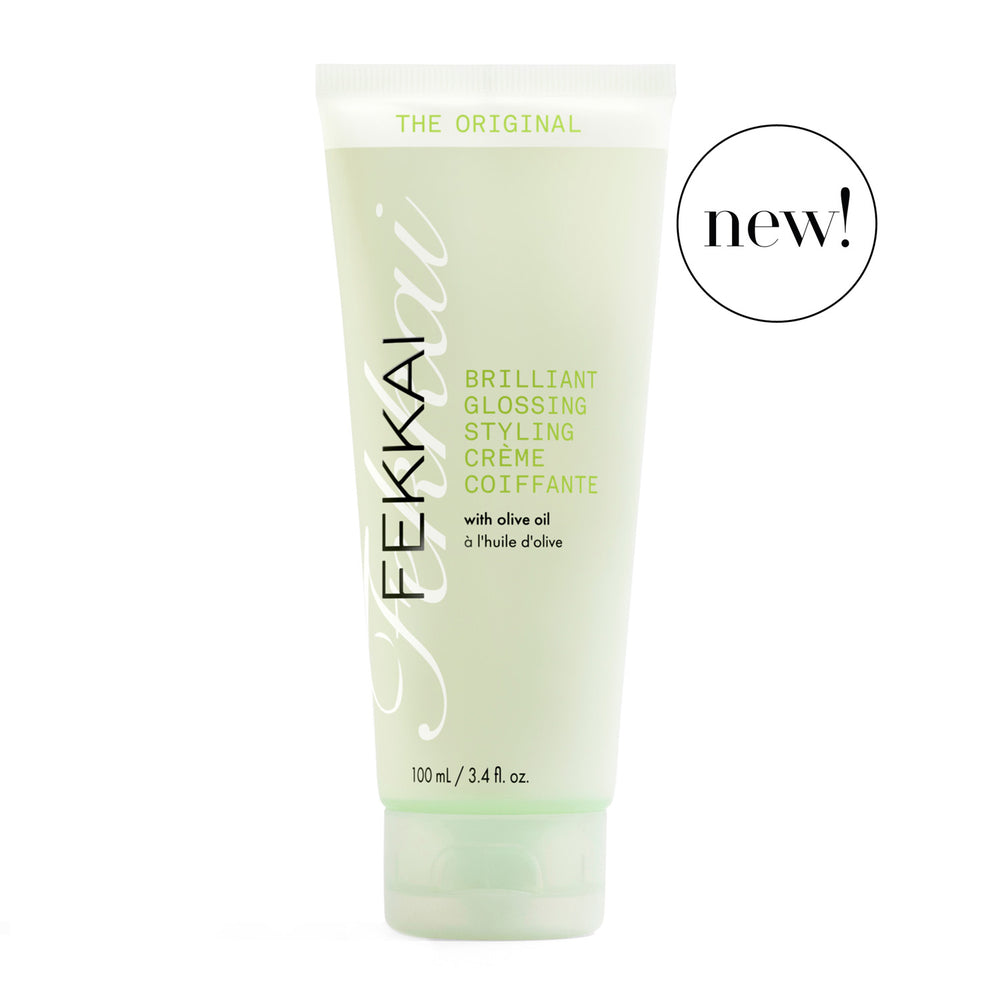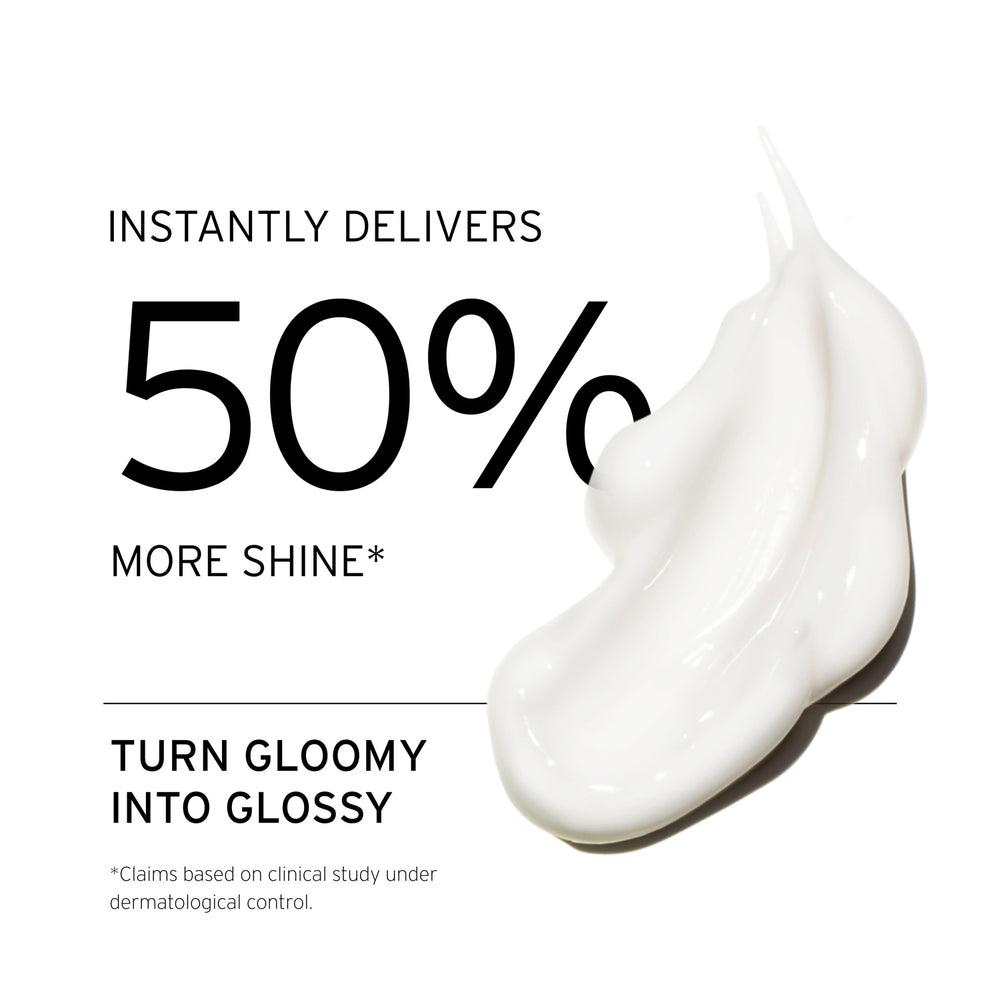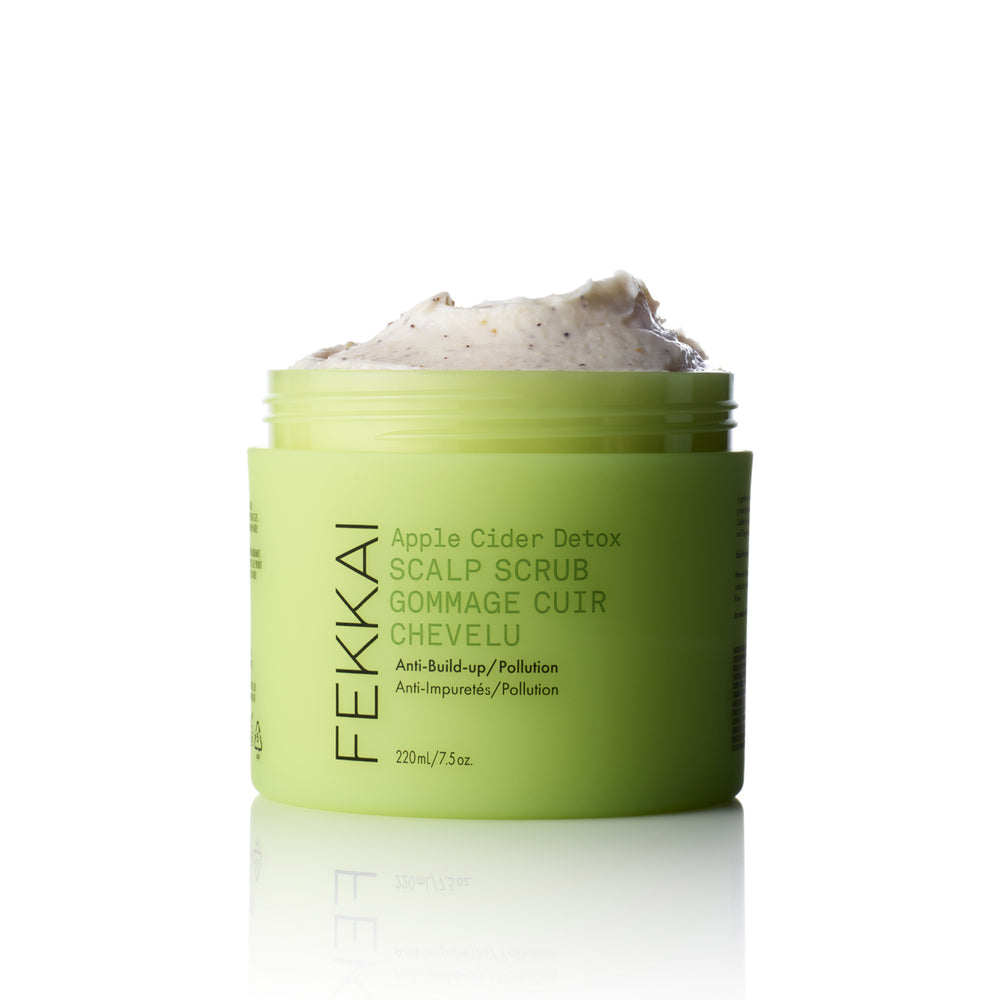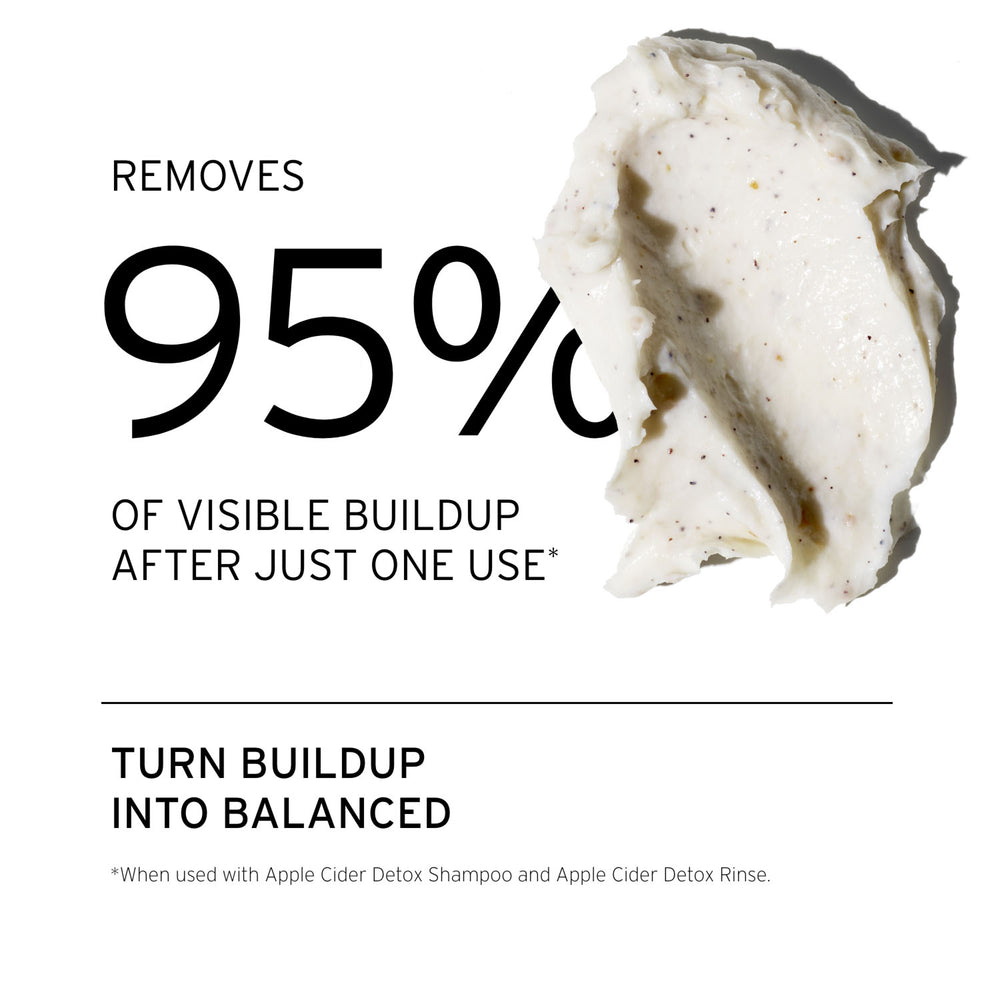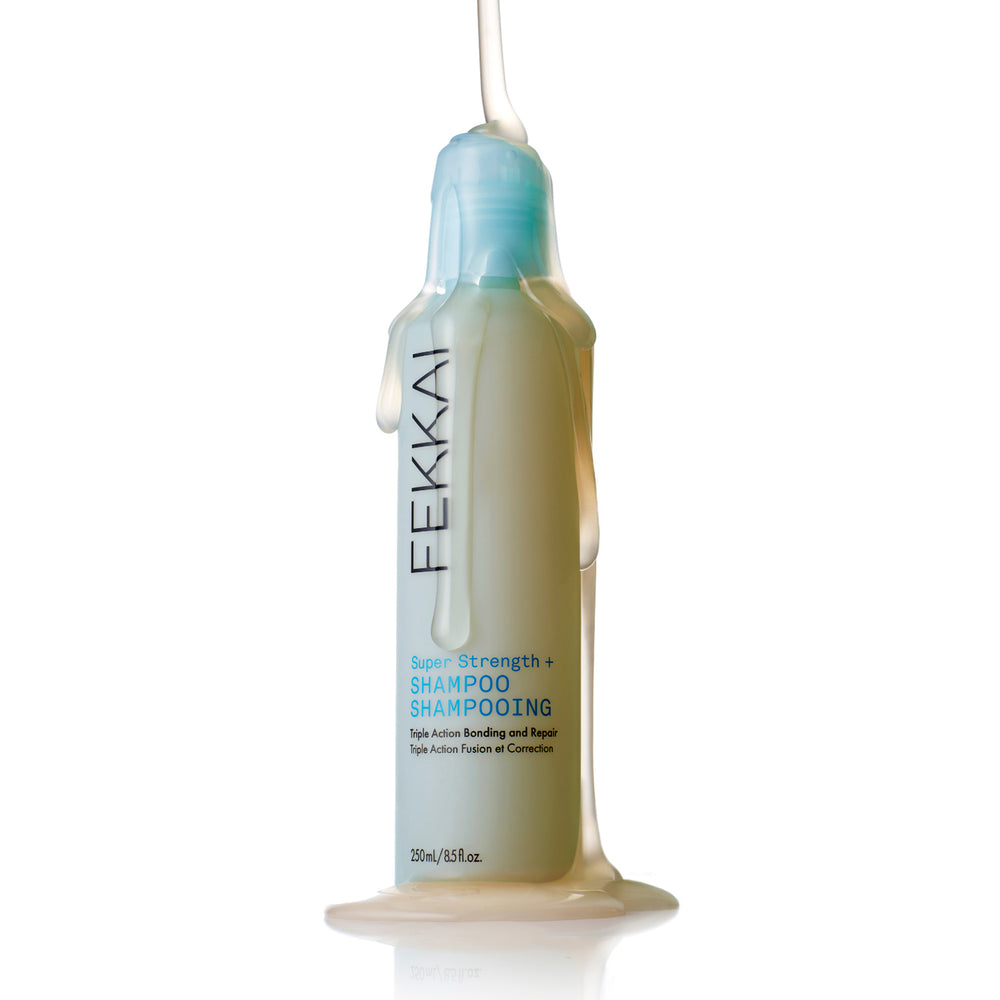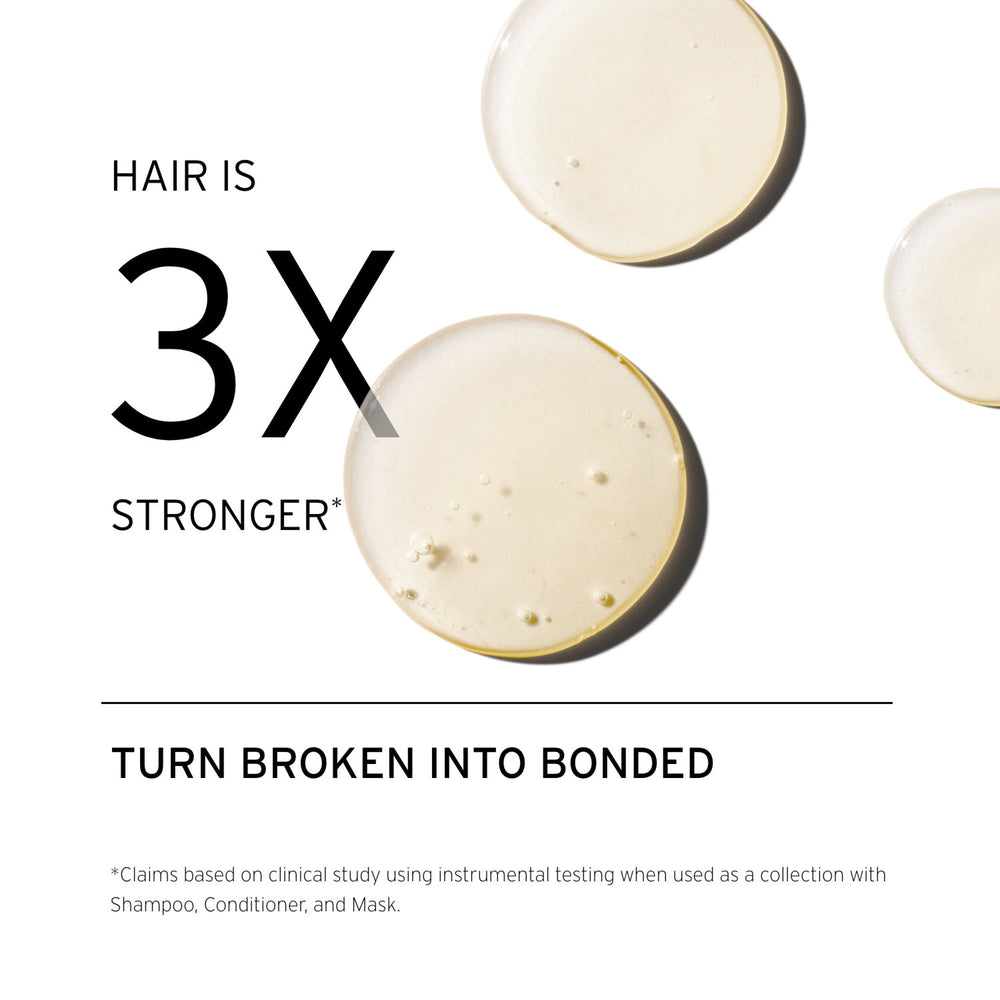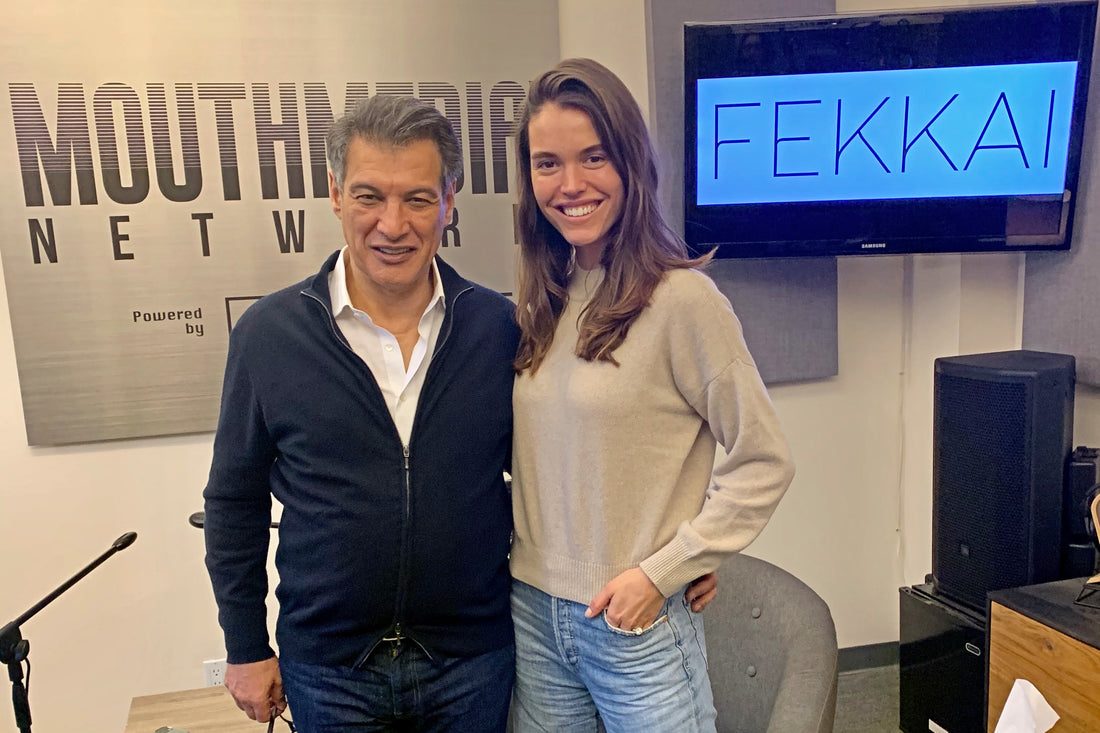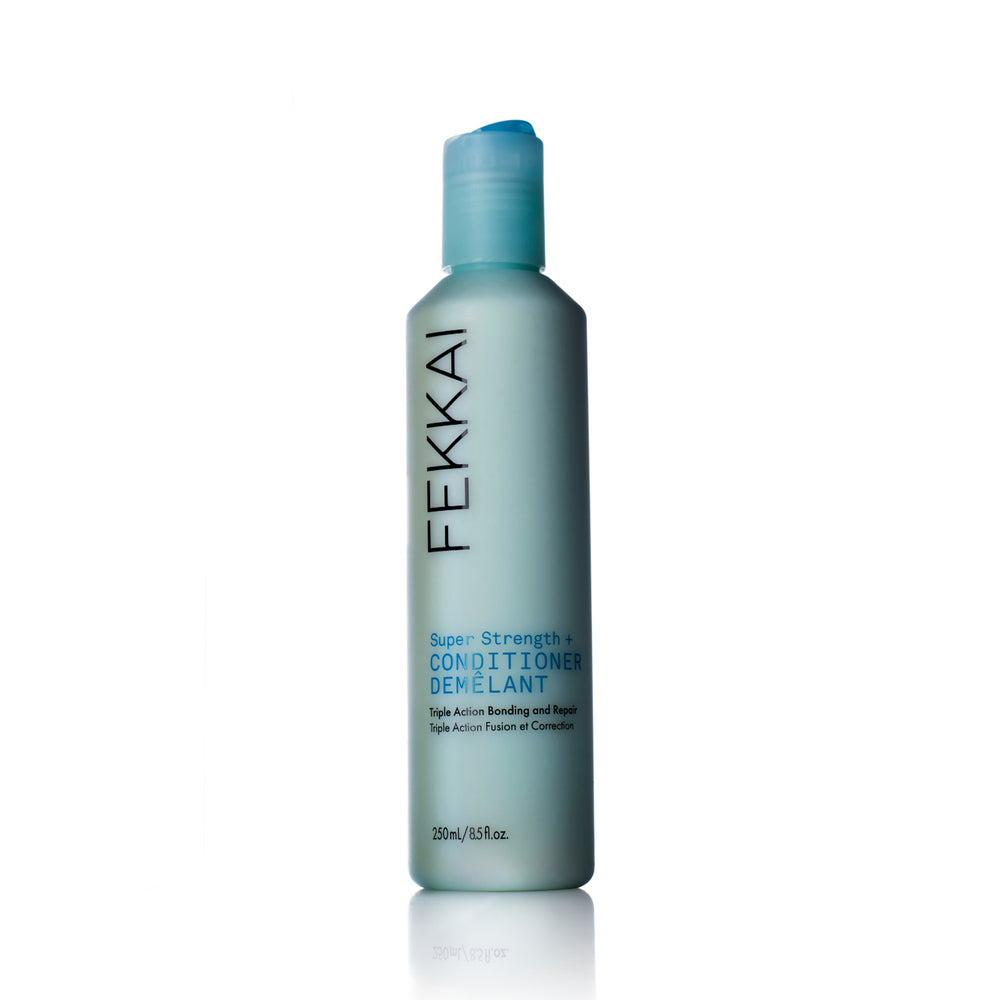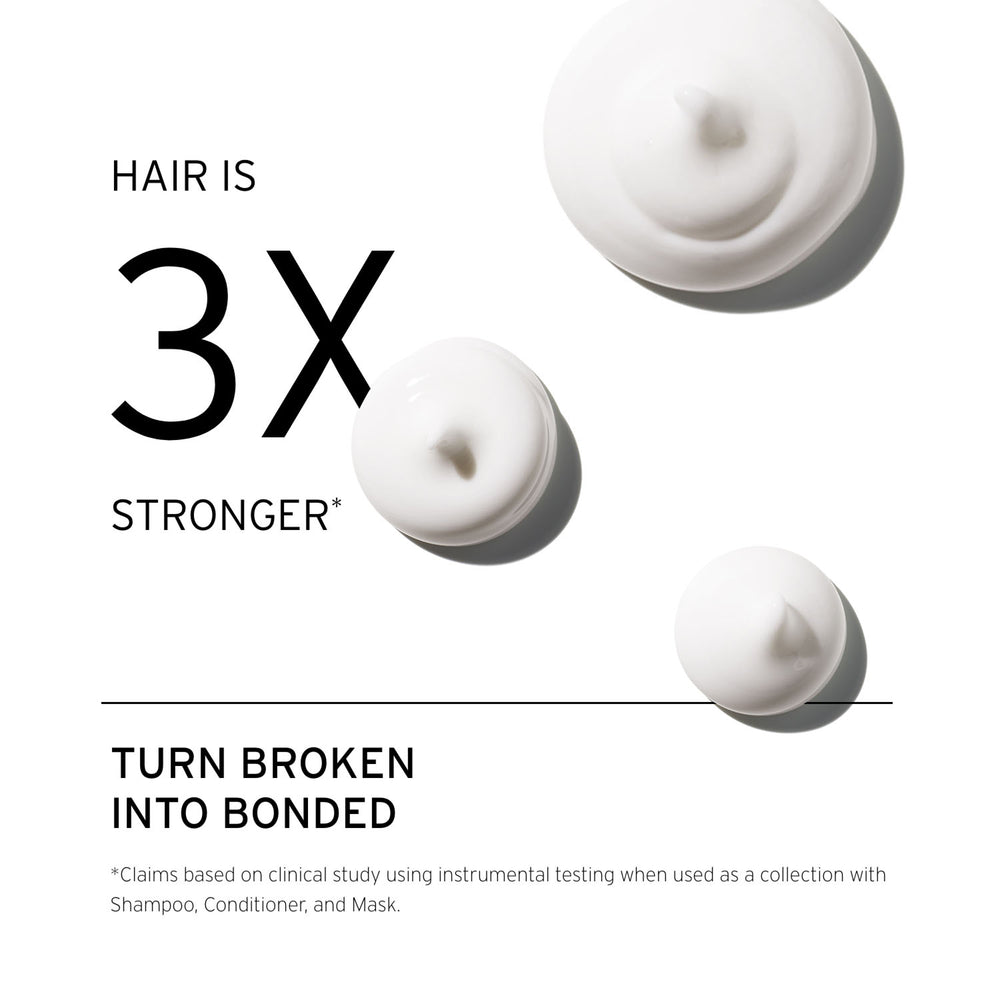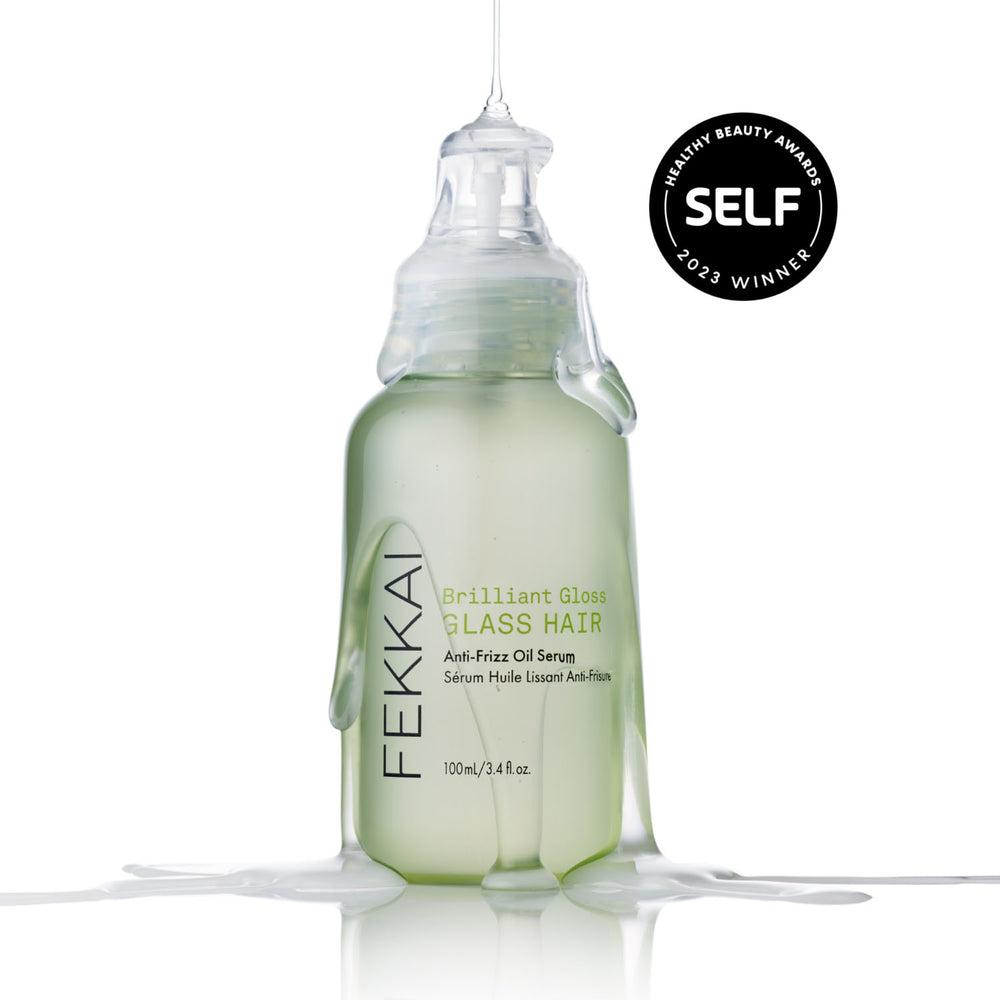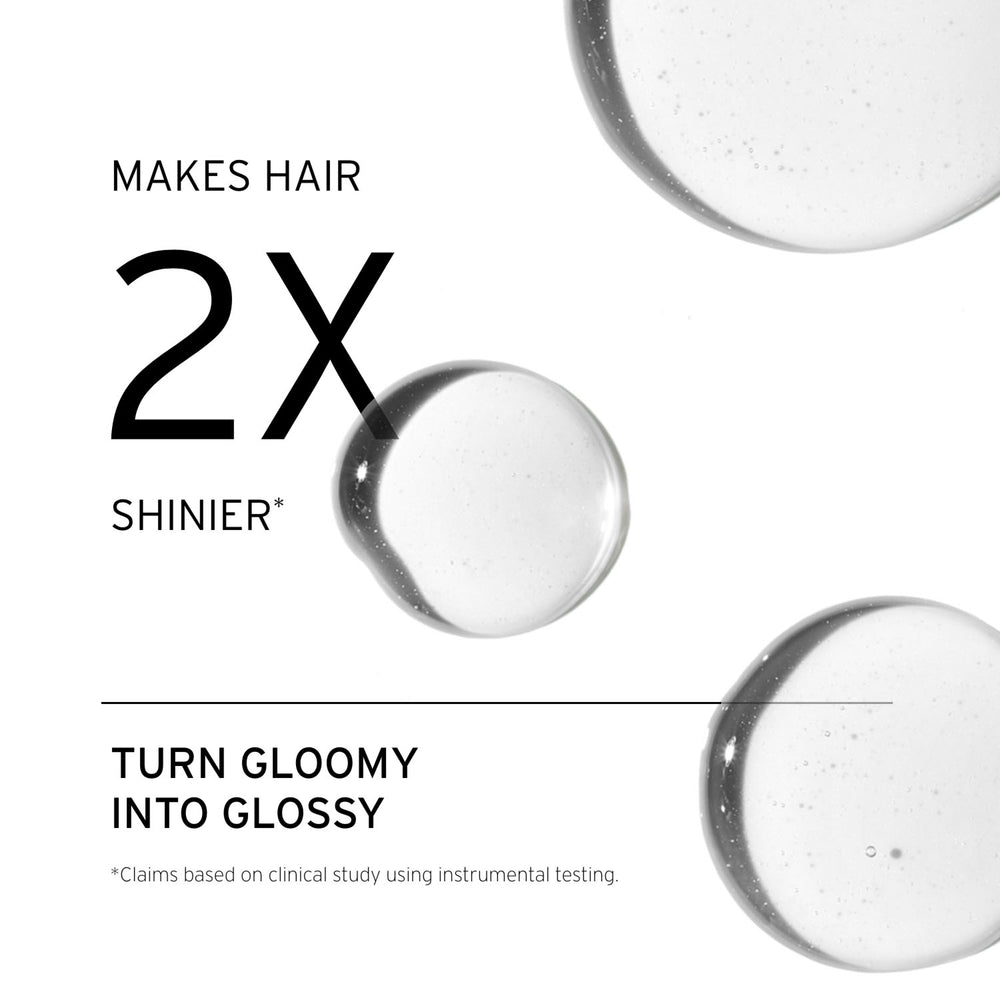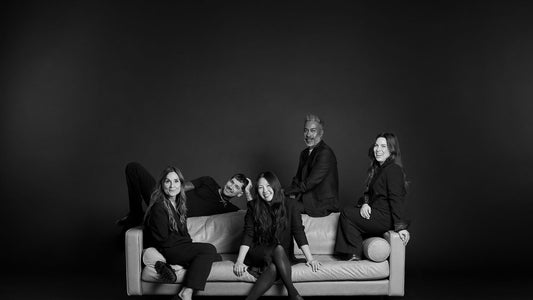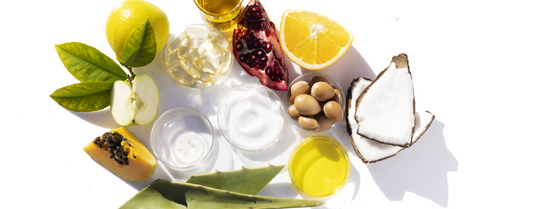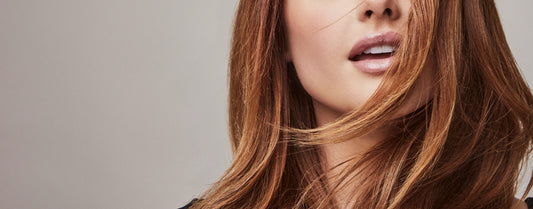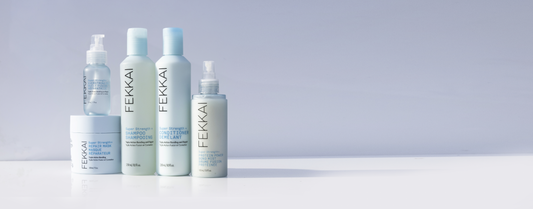I am a celebrity hairstylist, an entrepreneur, and a philanthropist who’s built my brand on taking care of others, body, hair, and soul. Join me weekly for The FEKKAI Life, a series of relaxed, intimate conversations with free thinkers, business leaders, and creatives who’ve used their passion to change the world for the better. Available wherever you find your podcasts.
BB: Hi guys, I’m Britt Bergmeister. I’m a model activist. I model and I’m also supportive of sustainability and the climate change movement. And I’m the cofounder of On Duty Citizen, which is a platform to also inspire conscious living with everything we do in life. And to me, clean living is about being conscious about everything you do in life, so every decision you make, just thinking before you act and always trying to choose the better solution and to always continue learning and inspiring and being inspired by community.
FF: I’m Frédéric Fekkai, and I’m delighted to introduce you to The FEKKAI Life, my first podcast. And I’m thrilled to introduce you to my first guest, Britt Bergmeister. Britt was very impressive when I first met her for a photoshoot at the session of clean and sustainable beauty. I love her action, I love her enthusiasm, I love her engagement, her investment, and I’m so excited to see this amazing spokesperson for sustainability and a better planet.
FF: Great to see you!
BB: It’s great to see you too. It’s been a while.
FF: Yeah.
BB: The last time we saw each other was at the awards ceremony.
FF: Exactly.
BB: You won an award.
FF: That was fun. That was fun.
FF: Tell me, this is amazing. “Model.” What is “model”? How do you get into being a model?
BB: I’m still trying to figure that out eight years later full-time modeling in New York. Honestly I went to the industry to get signed myself. I had always been passionate about fashion and my mum was in the industry as well so I had that as an example.
FF: What was your mom doing?
BB: She was modeling. She was modeling for a few years.
FF: Great. Where was that?
BB: She was in Toronto, she went to Paris a little bit, but she’s done so many different careers which is kind of a nice example for me. She’s been a stockbroker, she’s been a flight attendant, she was a model. So she was very supportive of me going and doing whatever I set out for.
FF: Great.
BB: So I did go to school for a year in Toronto and then my agency that I had been visiting for every summer kept saying "let’s just wait ’til you’re ready, finish high school, be a kid, and then we’ll think about signing you when you’re done." So I started university and then modeling started to pick up.
FF: What did you study?
BB: I studied everything that first-year student would study when they don’t know what they want to do. So I took Political Science, East Asian History, Sociology, Psychology, and nothing was amounting to what I felt was a career I envisioned. I didn’t know. I was 18, I was young. You had to declare your major and I didn’t know what to do so fashion had always been something I was passionate about and I loved the creativity of it. The fact that you’re always something different and you can use your platform for good, whatever it was. So I took myself to the agency, I got signed while I was in university and then I met with an agent from New York. And it just took off from there. I decided to put school on hold and got myself to New York.
FF: Wow. So how did you get from there to sustainability? Explain a bit how you become an activist.
BB: So that took a while for me to get to. I was probably modeling four or five years. I always knew I wanted to do something else, be a model and something. Not that there was any pressure to, I just felt modeling gave me a platform.
FF: Were you growing up with this environment?
BB: Funnily enough, like we didn't have—in Canada, a lot of the things that are considered sustainable or eco friendly are just part of the norm growing up, like everyone has a compost bin. It's just the way of life there. So there were little bits of that, that were kind of sprinkled into my life, but my parents were always just supportive with anything I wanted to do. It wasn't like you have to eat healthy, you have to recycle. They provided me with a good strong upbringing and let me flourish, whatever.
FF: So what ticked you? What made you?
BB: That was, I'd say, like four or five years into the industry, I noticed that I had this platform and people would listen to me, whatever it was I kind of said, and this was around the time that sustainability was coming into conversation. So I thought, I have this platform, why don't I just use that?
FF: When you say platform, explain that to us.
BB: Oh, yes, sorry. So I guess most of the platform I mean is social media, like Instagram, even just my community, a lot of people respected me, I guess, even though it's funny to say, but because I was a model, I don't know.
FF: Can you tell the audience how many followers you have?
BB: So I have around 25,000, I think which is, I don't know, in model terms that might be not considered a lot, but the fact that I have like 25,000 people sometimes listening to me is huge. And I recognized that and I thought this could be my way of making a change. I'm going to learn more about sustainability. I didn't know much about it at the time, I knew nothing but I recognized that I could be transparent about what I learned along the way, and then relay that with all my followers through the social media platforms.
FF: So, sustainability for you. What does it mean in your way of life? A day in the life of Britt…what does it mean?
BB: Sustainability, that's a word I use probably 100 times a day. It's a very broad term and it can mean so many different things. I think the best way that I can be sustainable and how I live my life sustainably is by being transparent. So whether that's sharing with my friends and family and followers that I choose to recycle, or that I'm using, promoting companies that use biodegradable materials or recycled plastic or about cleaning the oceans, there's so many facets of it. So with everything I do, I try and just promote transparency. I'm trying to get the person who does nothing to join the movement. So I want them to see that although it is a broad term that can seem kind of overwhelming, maybe there's one thing that resonates with them, and then they'll join the movement through that.
FF: So how did you come up with On Duty Citizen? And tell me, what is this all about?
BB: So around 2017, or the end of 2016, my mom, who has a background in business and fashion, and me, who has a background in fashion, we had begun to hear this buzzword about sustainability. And we thought—I was getting to that point where I wanted to use this platform I have for the better, so we thought why don't we create a company that promotes sustainable and ethical fashion. So we created On Duty Citizen as a way of sharing our favorite sustainable and/or ethical clothes. So companies that are using biodegradable materials, vegan, plastic-free, recycled plastic, and we would disclose what they're doing specifically and share that with our followers just so it would make sustainable shopping a little bit easier. It's grown since then to promote other citizens of our community. So we have a section called On Duty Citizens. And we profile Citizens of the Month who are doing cool things in and outside the fashion industry. But it's all about the community you make and the networks you have and the influence you can make on other people. I've been inspired by so many people, so I like to highlight them with this platform.
FF: Do you see a lot of reaction? Do you do you feel like it is a movement that is really taking off? Is this growing very well?
BB: Yeah for sure. It's kind of like the clean food movement I see that was popular a few years back. And now it's no longer the model activists who are using the word sustainable fashion, everyone notices it and realizes the importance of ethically made clothes. So it's definitely trending right now—you saw in the past Fashion Week, and it's all over the news. But I truly believe it's a trend that's going to last and stay forever and it's not going to be a question of "is that clothing made sustainable?" That's just going to be the norm. And if you're not part of that movement, you're not going to last.
FF: What is the most frustrating moment for you? And what do you see that you would like to improve to make this place a better place?
BB: Yeah, that's a tough question because I personally tend to get frustrated with myself because there's days where I feel I can do so much more. And then there's days where I feel like I'm taking on too much. And so many things attract my attention because I feel we need to change in so many regards. As I mentioned, sustainability is such a broad term. So, while it's not frustrating, I just think it's important to always check in with yourself and your values. See how you can grow and whatever resonates with you take that as a starting step, and just learn to grow from that. And I'm nowhere where I was when I started in this sustainable movement. There's so many ideals that I've changed from or grown from. And I just know that it's a movement that's ever-changing, and we have to be open and honest about it all.
FF: So tell me about—I love this whole hashtag, #sustainabilityissexy.
BB: Yeah. That's one of the hashtags we use, we have it on some of our own clothing that we've made for On Duty Citizen. And I think, to get those people who aren't potentially into sustainable fashion, to get them involved, you need to be stylish and sexy and sleek before you're sustainable. Not to say that you can't be sustainable, I want everyone to do the best they can when with whatever they're producing.
FF: It's a good point because it's true that sometimes sustainable seems a little bit too vulnerable.
BB: Yes, exactly. And it has this like, not negative stigma attached to it, but you know, the granola hippie kind of vibe is associated with that word. So you have to, with anything you produce in this industry, you have to be stylish first. And then it's an added plus that it's sustainable. So I just wanted to make it—actually my mum came up with the term. And when she first told me I was like, "No, that's too risqué, I don't like it." And then stuck and everyone was like, "Oh, I love that." So that's one of our little hashtag we use to promote everything.
FF: You said you are making clothes.
BB: Yep.
FF: So tell me, how do you make sustainable clothes and where do you make it? What’s the process there?
BB: Originally I think with the company, we wanted to be more of—have our own line. And that was going to be the big selling point. And I realized in researching that a lot of companies were already doing what I wanted to do. They were already doing the perfect white t-shirt, the perfect hoodie, whatnot. So we did set out to do our own prototype of a white t-shirt. I went to the factory, I interviewed everyone there, made sure it was a place that they liked working. I got the sample yardage. It's a very intensive procedure to make clothing sustainably and ethically, which is why it really made me appreciate sustainably made clothes. So we made up this mock-up t-shirt. And I ended up not liking the fit of it and the fabric. So that would have required me to go back to the drawing boards to set another fabric, order more minimums. And it was a big, lengthy process. So I ended up teaming up with a company that was already making those perfect white t-shirts, and then just branding them with our own slogan and logo. And that's kind of what we've done with everything else we produce. Maybe in the future. We can grow and do our own line again, but it's hard because I don't like producing stuff that's already made and overproduction.
FF: Did you find it was a little bit of a barrier on price, cost of goods? Was it too expensive?
BB: It was a lot too. Yeah, that was a huge factor in it. The cost was very high. And so I'm kind of waiting for that point where—
FF: I believe this is like in beauty. Years ago, we could not do really much clean formula, sustainable packaging because the cost of goods was too high. But today, because the demand is higher and many companies are trying to offer that we get the price to come down into be better, affordable.
BB: Exactly. So it has to be cost effective. And I think that's too—not to get too political. But when we vote, we can vote for the candidates who are going to tax the non-biodegradable materials or whatnot. That's where we can really make a change with the price of goods and whatnot.
FF: So, what's next for you? On this journey, what made you get so awakened, so excited?
BB: That's definitely a two-fold question because that's something that's changing everyday for me. I, formerly not even a few weeks ago, I was all about and still am, but I was all about individual action. And I was thinking any little thing that everyone does is going to make a huge difference, which is still very necessary. We need to get everyone doing that one thing that sparks their inner fire. For me that spark was just knowing I wanted to leave a clean planet for the future, for my little brothers, for the kids. I didn't think they deserved anything other than that. And with The alarming rate of all these natural disasters that just keep getting worse and worse and worse, it might be sooner than we all think. So we need to act now. And I think in addition to this individual action, what I've learned, relatively, as I mentioned, like not so long ago, was that it's all about the policy and the big conglomerates you support and higher-ups who have all the power as well. It's about waking them up and demanding positive change.
FF: What’s next for you?
BB: For me? So I plan to get way more political with what I do. And I just became a US citizen so I'm very happy to vote.
FF: Good. Congratulations.
BB: Thank you, it just felt—the opportunity was there. And that's my way of making a bigger change beyond the little individual actions that I can do daily with myself. So just getting more politically active, voting, maybe going to more climate marches, or rallies, stuff like that. I love doing that. It's a great way to expand your network and meet new people who are likeminded or different and new people to inspire you.
FF: Who do you admire? Celebrity or any personality that really does you want to do, what you wish to do? Who is your role model?
BB: There's a lot. I'm part of the Model Mafia activist group, which is a group of models who are generally passionate about the climate or women's rights. And there's so many women in that group, and some male models too, who inspire me daily, I'd say the two founders of the group, Cameron Russell and Áine Campbell have been a huge inspiration for me because it's almost like they see what's necessary and what we need to change like a year before we all do, and they realize the importance that this movement is so far beyond models, and they realize it's all about—the climate change affects us all. And it affects a lot of people disproportionately and with everything they do, they're very cautious about who's involved.
FF: How do you think we can—you, we—can trigger the government to be much more activist, much more aggressive into, you know, to really, as you said, make a huge impact because, we can just, you know, it's not just by just buying a shampoo or a t-shirt that will dramatically improve. It's a great beginning, great action.
BB: I think one of the best ways we can do that is to constantly learn and inform ourselves about what policies are in place. And if you disagree with that to go to rallies, support, uproot activists. There is a great movement called the Sunrise Movement and they have a film premiering next week all about the Green New Deal. And they're urging us all to host little movie premieres for that. Movie viewings to get everyone inspired and woke and to vote with their, you know, so I think it's all about just mobilizing and coming together as a group.
FF: And I think also the customer behavior, by making choices that are much more sustainable.
BB: We have the power to vote. You know, our vote—our dollars, our vote, right? If we can support companies that are "doing it right" or at least one step in the right direction, people notice and appreciate that. And a lot of the times, the government or whoever else, the higher the huge companies who have all the money, they'll see where the demand is, and maybe that'll inspire them to change for the better. You know, a lot of people ask me why I model for certain companies that I probably wouldn't have on my site On Duty Citizen, but it's not about working against them. It's about working with them and inspiring them. So if they see that a model is into biodegradable fabrics, or organic cotton, maybe that'll be enough to have a conversation and then they can change.
FF: What advice would you give our listener to do on a daily routine to support and help this movement?
BB: With everything I do, it's all about being conscious about all your actions. So, thinking before you buy, do you really need another piece of clothing? Or can you buy something secondhand or borrow from a friend? It's all about actively thinking before you act. So that's something I think is an easy thing that kind of taps into all aspects of your daily living.
FF: Great. But we see the optimism is, thank God, here because I just read yesterday, you know, that Colgate came with a vegan toothpaste and totally recyclable packaging. So it shows that the big companies are getting there.
BB: They are. I think you have to be optimistic because if you read all the headlines or the articles and get discouraged by them, there's so much to get discouraged by, but it's about being optimistic about it all. And whether they're doing that, because it's the trendy thing to do or not, they're still doing it and they'll see that the demand is growing and the demand is there for better production processes.
FF: So now that On Duty Citizen is on the go, and well oiled and running properly, what is the next step?
BB: I think with everything we do with On Duty Citizen, and everything I do for modeling, my whole life is about getting people to join the movement. And so we provide that easy link for you to go to, to get inspired. And I basically just like pumping out information about sustainable topics and ethical fashion and cool jobs I've done with companies I support and then letting that be something the customer can choose resonates with them. So in order to see the progress I've made through that. I think I just see it—it's hard. I think a lot of other companies track that with followers or likes or whatnot. And I don't really do that. I just, I find it helpful with events or with going to marches with people or even just a topic of conversation like this. Everything I do with On Duty Citizen only used to be a topic of conversation with like-minded people. Now I'm talking about this with friends from high school who I never thought would be interested in any of this, or my own family members, distant relatives, you know, that hard uncle that's never gonna agree with you. Now they're interested in it, because more and more people are talking about it. So that's kind of how I judge how well we've done with that. And not just me personally, I mean, the whole movement. So I think it's just about reaching out to your community and beyond and kind of keeping the conversation flowing really.
FF: Well, you’re the best spokesperson for them.
BB: [Laughs] That’s what I hope. I try to be.
FF: You’re very articulate, you are attractive, and you are ambitious. So great, good luck with it.
FF: It's clear to say that Britt is on to something. On Duty Citizen is a great platform and I believe that now, it would be exciting to see what is the next step, the execution and now we will hear how she can scale and make a bigger difference. Please join us next week for part two of this conversation. I'm Frédéric Fekkai and this is The FEKKAI Life. Thank you for listening.
Listen to Part 2 of this episode here.
Follow Frédéric Fekkai on Instagram and LinkedIn.
Follow FEKKAI on Instagram, YouTube, TikTok, and Facebook.
Subscribe to The FEKKAI Life podcast on Apple Podcasts and Spotify.
